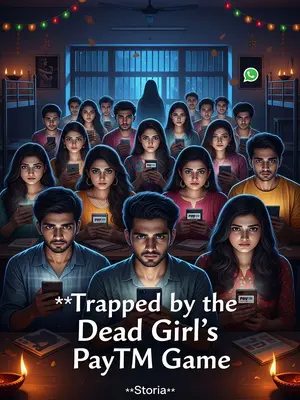Chapter 3: The Locksmith’s Rules
My name is Rohan Mehra, and I’m a locksmith. Tonight’s job was already my forty-seventh of the day.
Sometimes I wonder if I’m breaking some record. But in this city, everyone’s always rushing—losing keys, wallets, even their own names. Every jammed lock means another chai at the corner stall, another day I don’t have to ask Ma for money.
The lock on Flat 1404 tonight? Same one I’d sabotaged that afternoon. I still remember the sunlight slanting into the corridor at 2 p.m., the sizzle of lunch from someone’s kitchen, the security uncle dozing at his post. I’d worked fast—old lock, soft metal, just right for my trick.
Stick a toothpick in the keyhole, snap it off so a sliver’s left inside. The key won’t go all the way; even a tiny obstruction keeps it from turning. Some try to force it and break the key. Either way, they’re locked out.
It’s a classic move—learnt from an old-timer in Chawri Bazaar: “Beta, keep your hands clean, but your mind sharper than a broken key.”
Then I swoop in, unlock the door, and gently nudge the customer to replace the lock cylinder. Service fee, unlocking fee, replacement fee—if you can’t handle that, you’re not cut out for this game.
People expect drama. If you just pop open the lock, they feel cheated. Change the cylinder, show the worn-out part, and suddenly they think you’ve saved their day.
Why do I do it? Because business is tough now. Customers try everything—maids, society WhatsApp, YouTube tutorials—before calling me. Meanwhile, the competition’s everywhere: digital locks, online key-cutting, dozens of stickers in every lift.
Sometimes, the whole wall’s plastered with ads—mine, Sharmaji’s, the new Bihari boy’s. Unless your number stands out, you’re invisible.
So I make my own luck. Sabotaging locks is the simplest, most effective way. Regular locks, toothpick does the job. Electronic locks? Foil and magnet, but that’s for another time.
You have to pick targets wisely: one flat per floor, always skip nosy aunties or the society secretary. Remove rival stickers. That way, only your number’s left when someone gets stuck.
Since I started, business is booming. Late-night calls are common—some folks keep odd hours, and my phone’s always on.
My ringtone wakes me as easily as Amma’s garam chai. She jokes, “Rohan, you’re the only one who gets paid for losing people’s sleep!”













